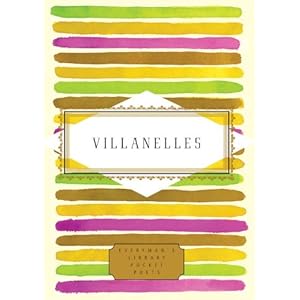My descort included a 12-bar blues stanza, a Rubliw (a syllabic form invented by Richard Wilbur), an ottava rima stanza in iambic pentameter, a villanelle in iambic pentameter (because one villanelle stanza does not demonstrate the form, I used a whole villanelle), a ballade stanza in a catalectic dactyllic tetrameter (Lew—not sure I described that right), an alexandrine with ABABA rhyme scheme, and a cinquai
I'm not exactly certain that a descort -- this descort, anyway -- is as interesting to read as it was to write. But I found that writing it gave a real insight into how form influences content.
I decided to do variations on a theme, because I suspected that there'd be a problem with, if nothing else, emotional continuity, so it made sense to come at the same thing in different ways. "Betty and Dupree" is a blues ballad, with a story line, so I could advance a plot at the same time I was working out stylistic variations, and whatever came with them. Also, by choosing a blues, I had my first stanza form.
DESCORT: DUPREE VARIATIONS
Betty told Dupree she wanted a diamond ring
Betty told Dupree, I want a diamond ring
Dupree told Betty, I’d buy you most anything
"Betty and Dupree" begins with a hopeless situation. Dupree will do anything for Betty, but he will never be able to afford a diamond ring. The blues stanza is not particularly designed to carry a plot. Its AAa form presents a statement, generally an emotional predicament, repeats that statement for emphasis, and then resolves it, with a fatalistic inevitability or an ironic twist. "I've got 19 men, and I want one more / I've got 19 men, and I want one more / If I get that one, I'll let those 19 go" (Bessie Smith). Bt "Betty and Dupree mak
s it work. Each stanza is a separate and complete chapter in the story.
Just sleep
little Betty
see what tomorrow brings
Go to sleep my little Betty
see what tomorrow brings
Now it’s only
Dupree
I got this form wrong (sorry, Lew!) A rubliw, invented by Richard Wilbur (hence the name) is supposed to be a monorhyme -- each line rhymes to the same sound. But I did have the syllabic pattern -- 2, 4, 6, 8, 6, 4, 2 -- and I chose it because I could keep the AA lines of the blues, using the second stanza of "Betty and Dupree" almost intact. But then I needed to shrink the final line, which in the original is "When you wake up in the morning, you just might have your diamond ring."
I had thought that in spite of the tragic nature of the original, all this playing with form would result in a playful, mostly comic poem, but that didn't happen here. As the form closed in on itself, so Dupree's options were closing in on him, awake and alone in the dead of night.
If history and legend have it right,
A man will risk it all to please a mistress.
We know from witnesses that Dupree’s night
Was fueled by coke and weed; his mood was listless,
Then near berserk; at last, by early light
His eyes were bloodshot and his hands were restless.
His mind was fixed. He took a .44,
To get that ring, he’d rob a jewelry store.
The ottava rima stanza is Byron's, and it's hard to approach it without Byron's ironic distancing. Nothing could be farther from the blues, which is all about empotional directness and intensity. I think this is one of the main reasons that the blues has lasted as important art form -- it is uniquely able to express deeply personal and powerful emotion. "Betty and Dupree" tells a story in the third person, but it's still Dupree's story, and the narrator is powerfully involved with him. The first important artist to use the blues as a storytelling vehicle with an ironically detached narrator was Chuck Berry.
My third stanza ends with the song's third verse -- "Dupree took a pistol, it was a .44 (2x) / To get that diamond ring for Betty, he had to rob the jewelry store." The song gives us Dupree's isolation and desperation. Byrony irony puts Dupree in a historical/psychosical context, and moves us away from Dupree. We only know his story from witnesses.
More later.
